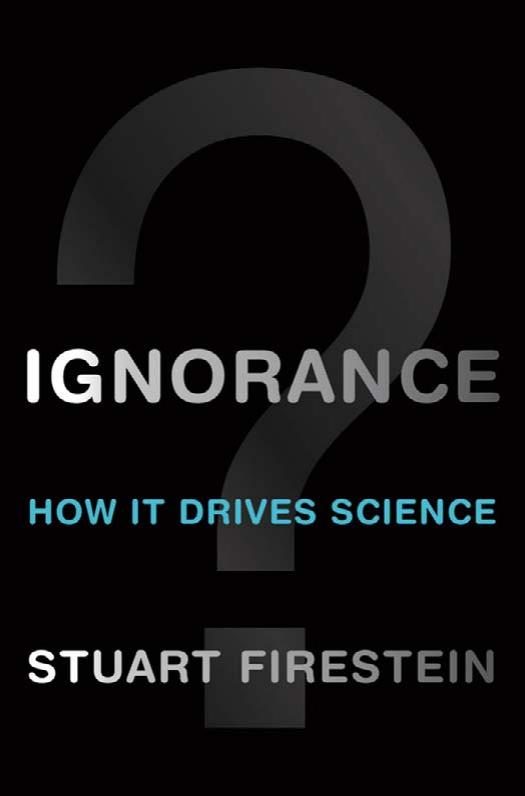Ignorance by Firestein Stuart

Author:Firestein, Stuart
Language: eng
Format: epub, pdf
Publisher: Oxford University Press, USA
Published: 2012-06-28T16:00:00+00:00
2. EVERYTHING = 1(TUTTO = UNO)
Why does there have to be a unified theory of everything before physicists will be content? There is no comparable drive in chemistry or biology. Are those fields fundamentally different or perhaps not as mature as physics? Physics is probably the most remarkable success story in science in its ability to explain everything—or almost everything. And perhaps there’s the rub: there seem to be just a few bits missing, and that’s sometimes worse than having whole swaths of ignorance. Physicists know a lot about how things work when they are very small and have almost no mass—this is the quantum world; and they know about the fundamental characteristics of the very big, the cosmologically big—this is relativistic physics. But they don’t know how to connect these two universes—this is the elusive unification. Of course, it may also be that the grand unification, if achieved, will immediately reveal more parts that are suddenly inexplicable—much like establishing the atom, the “indivisible” unit of mass, almost immediately gave rise to the recognition that there were constituent parts previously unimagined. Thus, even now there are the nefarious-sounding “dark matter” and “dark energy,” unseen (in the deepest sense of being undetectable directly) but making up the bulk of the universe, and that may or may not be part of the grand unification.
So what happens if these two physics can’t be fused? Well, then there are numerous key questions that physicists will not be able to address, some of which they know already and perhaps some others of which they have only a hazy inkling. Many of these questions have to do with some fairly fundamental issues—the true nature of mass, of time, of the beginning of the universe, of why it is like it is. At this juncture, physics intersects cosmology in a field that has come to be called astrophysics, where asking questions about the universe out there, way out there, turns out to be useful for asking questions about physics right here. The astronomical universe has the kind of laboratory conditions that could never be found on the earth. To the extent that we can observe what’s going on out there—and to the extent that we are confident that physics in the region of the earth and this solar system is no different (that is, obeys the same laws) from what it is at the farthest boundaries of the universe—then the physicist can pose fundamental questions about the nature of matter and energy in the laboratory of the cosmos.
Sounds great, but here are some serious problems associated with being an astrophysicist who uses the universe as laboratory. One is that you can’t actually get there. Two is that you can’t do experiments on “it.” Three is that you are a part of it, so measuring it objectively can be awkward. Four is the time limit, the speed of light, which puts a horizon on time so that you can’t see there, or then either. Actually, you can only
Download
This site does not store any files on its server. We only index and link to content provided by other sites. Please contact the content providers to delete copyright contents if any and email us, we'll remove relevant links or contents immediately.
Enlightenment Now: The Case for Reason, Science, Humanism, and Progress by Steven Pinker(7308)
A Journey Through Charms and Defence Against the Dark Arts (Harry Potter: A Journey Through…) by Pottermore Publishing(4811)
The Immortal Life of Henrietta Lacks by Rebecca Skloot(4581)
A Journey Through Divination and Astronomy by Publishing Pottermore(4384)
Elon Musk by Ashlee Vance(4122)
Origin Story: A Big History of Everything by David Christian(3690)
COSMOS by Carl Sagan(3619)
Alchemy and Alchemists by C. J. S. Thompson(3516)
Bad Pharma by Ben Goldacre(3423)
Enlightenment Now by Steven Pinker(3367)
Shadow of Night by Deborah Harkness(3361)
Inferior by Angela Saini(3311)
A Mind For Numbers: How to Excel at Math and Science (Even If You Flunked Algebra) by Barbara Oakley(3302)
Origin Story by David Christian(3196)
The Code Book by Simon Singh(3185)
Signature in the Cell: DNA and the Evidence for Intelligent Design by Stephen C. Meyer(3132)
The Elements by Theodore Gray(3054)
A Brief History of Time by Stephen Hawking(3023)
A Journey Through Potions and Herbology (A Journey Through…) by Pottermore Publishing(2852)
